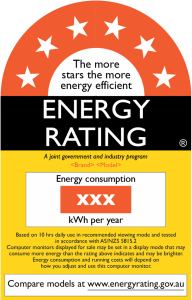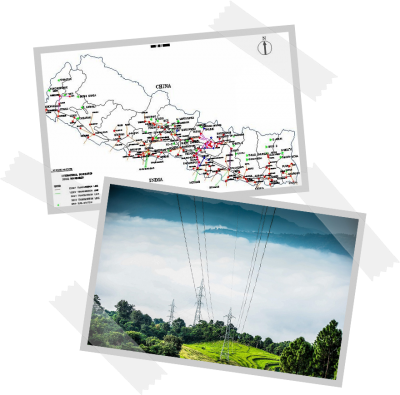
EE For Nepal
On November 19, 2018, the Government of Nepal approved the National Energy Efficiency Strategy 2075.
Energy remains at the core of Nepal’s development challenges. Nepal faces a complex set of inter-related challenges on energy: nearly one fourth of the total population still outside the reach of modern energy services; gap between energy demand and supply; supply vulnerability; energy import dependence and the resulting drain on foreign resources. Nepal’s Energy Efficiency Strategy (NEES) seeks to directly address many of Nepal’s existing energy challenges.
Vision
To assist in energy security by increasing the energy access through efficient use of available energy.
Mission
To promote energy efficiency by effectively implementing energy efficiency programmes through establishing policy, legal and institutional frameworks.
Goals
To double the average improvement rate of energy efficiency in Nepal from 0.84% per year, which existed during the period of 2000 -2015 AD to 1.68% per year in 2030 AD.
Objectives
- Support to economic growth by reducing energy intensity and increasing productivity
- Reduce existing energy shortage, increase energy access and provide important contribution to energy security by efficient use of energy
- Create employment opportunities by creation, expansion and commercialization of energy efficiency market
- Maintain environmental balance and bring positive improvements in health by efficient use of energy
Five pillars of the National Energy Efficiency Strategy
The National Energy Efficiency Strategy works through five pillars to achieve the overall vision.
- Awareness: Generate awareness about energy efficiency across all stakeholders
- Institution: Build the institutional, legal and policy framework for energy efficiency in Nepal
- Standards: Develop national standards consistent with international and other domestic standards
- Competitiveness: Enhance of competitiveness of our products and services by reducing energy costs through energy efficiency
- Import reduction: Reduce energy import dependence through greater use of energy efficiency
Awareness
Generate awareness about energy efficiency relevant for everyone, from the consumers’ level to policy makers’ level.
To achieve a broad level of awareness on energy efficiency, Government of Nepal plans to implement the following activities outlined in the strategy.
- Conduct public awareness campaigns related to energy efficiency by targeting household sector.
- Conduct energy efficiency initiatives by targeting consumers of industrial, commercial and transport sectors.
- Conduct energy efficiency initiatives for farmers about energy efficient equipment in agriculture and their uses.
- Include subject materials related to energy efficiency into the curriculum of educational institutions and conduct activities related to energy efficiency.
- Conduct activities related to energy efficiency in public and community organizations.

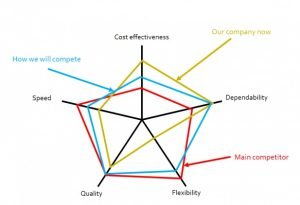
Competitiveness
Make services and production cost effective and competitive by reducing energy consumption in the production of goods and services.
Government of Nepal intends to enhance competitiveness using energy efficiency through several proposed activities.
- Institutionalize energy efficiency in Nepal through the development of National Energy Efficiency Action Plan.
- Identify large-scale electricity consumers and conduct their energy audit.
- Prepare necessary human resources for energy audits by conducting energy auditors’ training as required for various fields and by establishing an accreditation system of energy auditors.
- Develop minimum energy performance standards for electrical and mechanical equipment being used in various sectors.
- Conduct various activities related to energy audits in industrial, commercial and public sectors.
Institutional
Establish policy, legal and institutional frameworks for resources management, resources mobilization, infrastructure development and human resources development required to achieve the vision and goals for energy efficiency.
Government of Nepal plans to implement the following activities outlined in the strategy to build the institutional framework.
- Establish an energy efficiency entity for promotion, development and implementation of energy efficiency.
- Strengthen the existing energy efficiency cell in the Ministry of Energy, Water Resources and Irrigation as well as formulate and implement various activities related to energy efficiency.
- Carry out research and study on energy efficiency and demand side management as well as promote and develop energy efficient technologies also in collaboration with relevant ongoing projects.
- Develop an appropriate system for commercialization and market expansion of energy efficient technologies. Ensure energy efficiency during production, import or sales of technology and equipment.
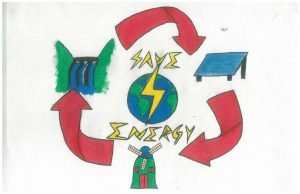
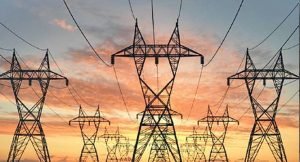
Import Reduction
Reduce energy import by energy conservation.
Government of Nepal proposes to reduce energy imports through the following activities.
- Reduce energy imports by utilizing the energy saved through energy efficiency
- Carry out study and research on reducing peak demand and implement various programmes on demand side management of energy.
Standards
Develop national standards for energy efficiency based on established international and regional standards and provide equipment and means for measuring energy efficiency.
To ensure that energy efficiency is supported by a strong of practical, enforceable, Government of Nepal intends to implement the following activities
- Carry out detailed study and energy audits of electrical and mechanical appliances in energy consuming various sectors and identify energy saving measures by developing energy performance standards.
- Conduct activities that promote the use of energy efficient equipment in transport and industrial sectors and reduce air pollution and greenhouse gas emission.
- Determine energy efficiency standards and label of equipment being used in energy consuming different sectors and ensure their compliance.
- Ensure the human resources development and capacity enhancement needed for the production, commercialization and technology transfer of energy efficiency related goods and services using energy efficient technologies.
